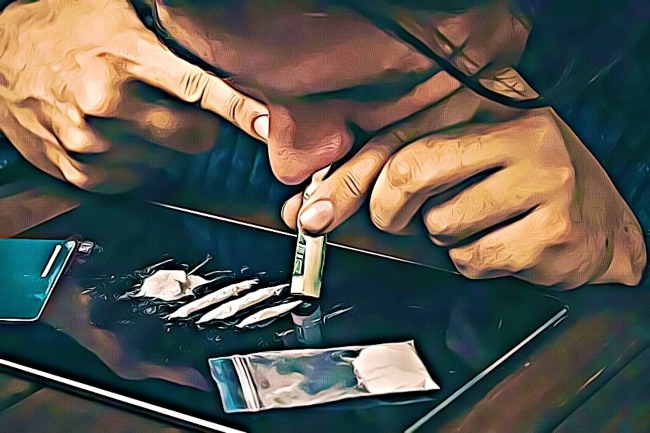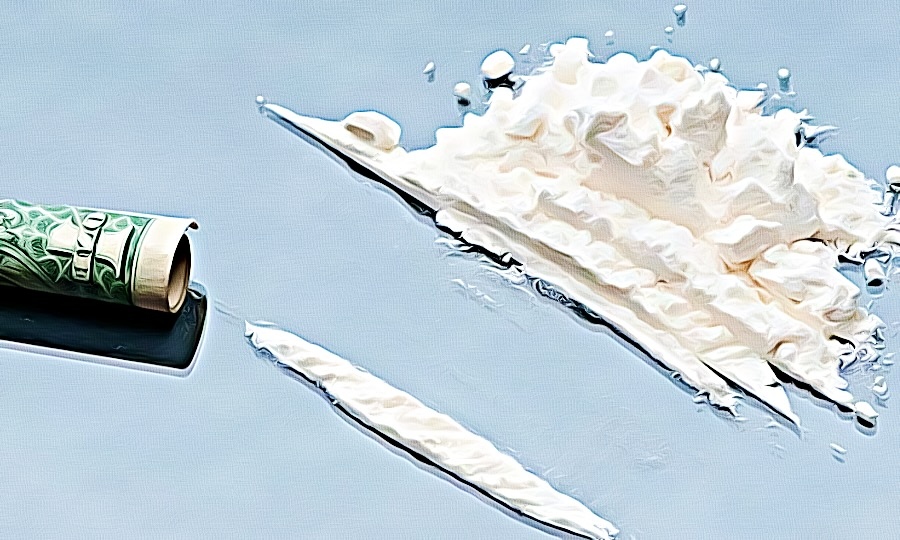Drug addiction has been on the rise! With the global pandemic causing devastating effects on businesses, communities, and individuals, it’s no wonder that some people look to drugs to get some sort of comfort or solace.
Cannabis potency has multiplied fourfold in some parts of the world over the last two decades in parts of the world over the previous two decades, which isn’t immediately a cause for concern since the substance has been legalized in other countries. However, while the increase in cannabis use isn’t that much of a worry, cocaine abuse is.
With drug overdose deaths involving cocaine rising from 3,822 in 1999 to 15,883 in 2019, this drug poses a serious threat to those who use it, those around them, and even society in general. In short, cocaine addiction is a major concern for public health officials and law enforcement alike.
Can You Overdose on Cocaine?
Sadly, the answer is yes. While the potency of cocaine depends on the delivery method, it’s a highly potent stimulant, with effects that rapidly build-up and wear off equally quickly. It can lead to seizures, heart attacks, stroke, and even death.
This is a primary reason why cocaine use is on the rise—for some, it’s easy to fall into a state of behavioral addiction, where you compulsively use cocaine to have a great time. Addiction can set in just as quickly for others as it becomes a daily habit.
While there is that thin line between a “good high” and a “bad trip,” overdosing on cocaine is slightly different because the two categories have a clear distinction. An overdose can be defined as the body’s response to a toxic or poisonous substance, while a “bad trip” results from a drug interaction and/or the person’s reaction to the drug.
The way cocaine is processed by the body makes it very easy for users to overdose. Cocaine is one of the most potent stimulants on earth and is a Schedule II drug that is highly addictive.
There are many ways to administer the drug, from snorting it, smoking it, injecting it into a vein. You can easily overdose by taking too much at once or mixing it with alcohol or heroin, or other stimulants.
Why Is Cocaine Addictive?
What makes cocaine so addictive is how it’s “dosed” in the body. When cocaine enters the bloodstream, it is metabolized quickly by the liver, which releases fewer molecules into the bloodstream than are ingested by the user.
The biggest threat to your body is when you take too much of a dose, especially within a short time frame. In this case, the liver can’t process the chemical fast enough, leading to the drug’s buildup in the bloodstream and the brain.
With a buildup of the drug, the user will experience an intense high, a feeling where the person is wired and can have an intense sense of awareness and appreciation for things around them. However, these feelings are only temporary and vanish, making the user crave more cocaine.
The danger is that this leads to addiction and abuse of the drug over the long term. Unfortunately, cocaine is not a drug that can be successfully used “in moderation.”
What Are the Symptoms of Cocaine Overdose?
Being aware of the symptoms of cocaine overdose is vital for the user and anyone in a position to help them. Cocaine overdoses can be fatal, and without treatment, death can occur within minutes of overdose, but even if you survive, a cocaine overdose can cause brain damage.
Watch out for these signs of cocaine overdose:
- Excessive sweating
- Rapid heart rate
- Vertigo
- Tremors
- Headaches
- Teeth grinding
- Paleness
- Hypertension
- Crawling sensation on the skin
- Chest pain
- Incontinence
- Frothing at the mouth
- Dilated and/or fixed pupils that don’t respond to light
- Blurred vision
- Difficulties with breathing
- Blue-tinged skin

What to Do When Overdosing on Cocaine
If you overdose on cocaine, seek help immediately, as it can be fatal. The best way to get help is by calling 911 or your local emergency number. On the other hand, if you are in the company of someone who is overdosing on cocaine, there are a few things you can do to help them while waiting for medical assistance:
- Try to keep them conscious by talking with them while under the influence. Don’t let them sleep, as it will just make the effects of the cocaine last longer.
- If you are a layperson and have to handle a cocaine overdose on your own, make sure the person is breathing, whether or not they are conscious. If they stop breathing, perform CPR or mouth-to-mouth resuscitation.
- Give them a glass of water and make sure they don’t choke on it. However, if the person is unconscious, don’t give them anything to eat or drink.
- Make the person throw up. If the person is conscious, have them vomit the drug up. This may seem shocking, but they may die if they have not received medical attention. Vomiting may not be the best thing, but it is better than having a full stomach of toxicity going directly into their bloodstream.
It’s also important to know what to look for after an overdose. If the person survives, they will most likely require medical treatment and will probably be admitted into a medical facility.
However, for a prolonged period of time after the overdose, they may be highly agitated and confused due to the cocaine. Also, drug-seeking behavior and withdrawal may occur after a cocaine overdose. Both of these conditions can be alleviated by medical professionals.
What are the Side Effects of Cocaine?
Cocaine overdose symptoms are severe and can be fatal. With the rapid absorption of the drug into the bloodstream, there are short-term effects on the brain, which include:
- Paranoia
- Restlessness
- Euphoria
- Energetic feelings
- Extreme sensitivity to light, sound, and touch
- Irritability
On the other hand, cocaine can also cause short-term effects on the body, such as:
- Tremors
- Muscle twitches
- Constricted blood vessels
- Large pupils
- Increased body temperature
- Fast heartbeat
- Nausea
The physical effects of cocaine may lead to the following medical emergencies:
- Bleeding in the brain
- Heart attack
- Miscarriage
- Ruptured arteries
- Stroke
- Seizures
Cocaine Withdrawal
Cocaine is a stimulant, and the “high” produced by the drug is very intense. For most people, feeling good after taking cocaine is a great reward, making it difficult to stop using the drug. When you have a cocaine addiction, you may have withdrawal symptoms when you stop using it, but this depends on each individual.
Cocaine abuse leads to physical addiction, which is not a simple process. It involves both physical and psychological dependence and tolerance to the drug. When a person stops abusing cocaine, there will be uncomfortable and difficult withdrawal symptoms.
Withdrawal symptoms usually occur within 24 to 48 hours—they result from physical dependence and negative changes in the brain and body that occur due to cocaine abuse.
Cocaine withdrawal symptoms include:
- Increased appetite
- Fatigue
- Anxiety
- Suicidal thoughts
- Depression
- Agitation
- Restless behavior
- Nightmares
Cocaine can also lead to psychological dependence, which involves addiction to the sense of pleasure and emotional well-being produced by the drug. This leads to drug-seeking behaviors, which is the person’s drug dependence on cocaine, as well as craving and compulsive use.
Conclusion
Cocaine is a highly addictive drug, and it can be hard to overcome an addiction. Luckily, there are treatment options that can help you recover and get on the road to a healthy, sober life. If you are struggling with cocaine addiction, remember that help is available.
Sources:
https://nida.nih.gov/research-topics/trends-statistics/overdose-death-rates

